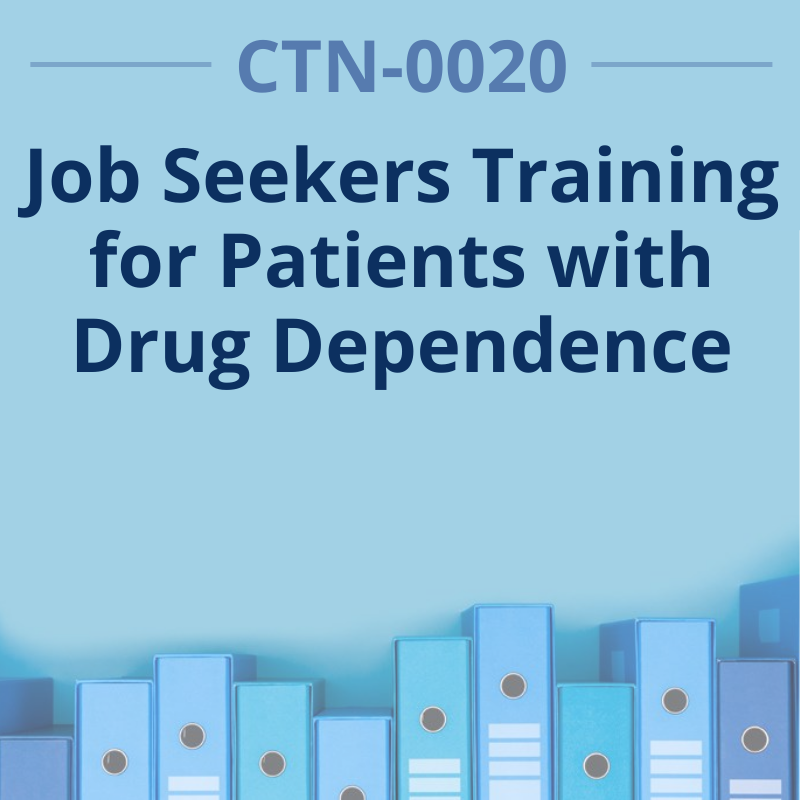CTN-0020: Job Seekers Training for Patients with Drug Dependence

Dace Svikis, PhD
Lead Investigator
Virginia Commonwealth University
dssvikis@hsc.vcu.edu
Drug abuse clients who are employed typically do better in their treatment than those who are unemployed. In addition, unemployment is a chronic problem in drug-dependent people. Despite the high rates of unemployment in this population, community treatment programs often do not have the resources to provide vocational services. This study examined the effectiveness of a 12-hour basic job-training program designed to give patients the skills they need to find and secure a job and set vocational goals and methods for locating employment. The intervention was modeled after the Job Seekers’ Workshop, which was manualized and trial tested.
Primary Findings
Job Seekers’ Workshop group participants did not have higher rates of employment/training than standard care controls. Rates of job acquisition were modest for both groups, suggesting more intensive interventions may be needed. Alternate targets (e.g., enhancing patient motivation, training in job-specific skills) warrant further study as well. Secondary analyses of present study findings will examine potential mediators and moderators of study outcomes, with a focus on barriers to employment and other variables.

Primary Outcomes Article: Svikis DS, et al. Randomized Multi-site Trial of the Job Seekers’ Workshop in Patients with Substance Use Disorders. Drug and Alcohol Dependence 2011 (in press). [get article]
Related Studies
Related Resources
- CTN-0020 Study Protocol
- Publications in the Library about CTN-0020
- Study data from NIDA Data Share
- ClinicalTrials.gov (NCT00102362)
- NIDA protocol page
Node Involvement
Lead Node(s):
All Participating Nodes: